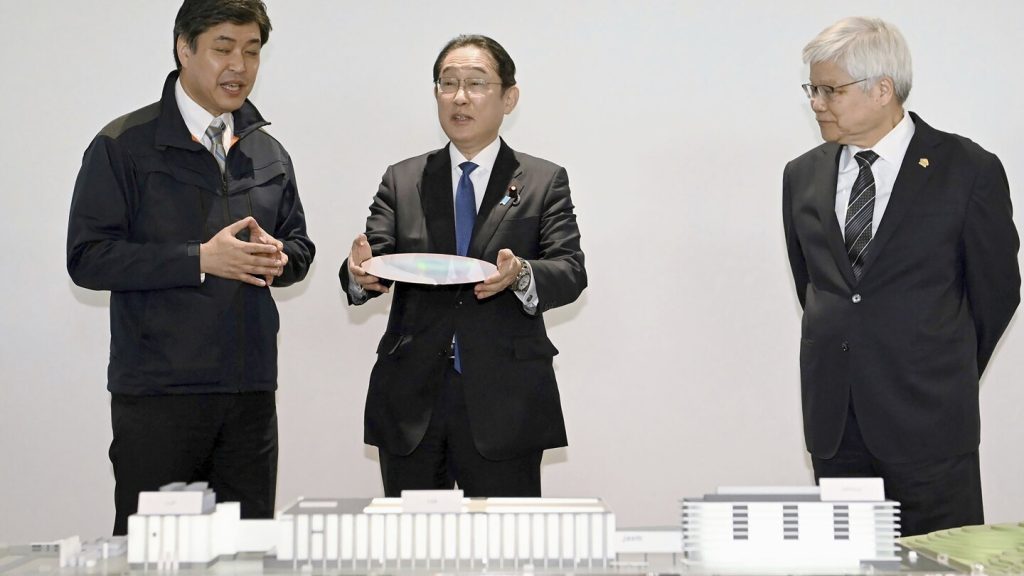Japanese Prime Minister Fumio Kishida visited a new semiconductor plant in Kyushu, Japan, for which the government has pledged over 1 trillion yen in support. This is part of Japan’s efforts to secure a stable supply of chips, crucial for various industries such as electric vehicles and electronics. The plant is majority owned by the Taiwan Semiconductor Manufacturing Co. (TSMC) and marks the company’s first venture into Japan, with Japanese companies like Sony, Denso, and Toyota also investing in the project. This move reflects Japan’s ambition to regain its foothold in the semiconductor industry, which it once dominated decades ago.
With Japan’s chip industry declining to under 10% of global production, the government has earmarked around 5 trillion yen to revitalize and become less dependent on imports after experiencing shortages during the pandemic. The demand for advanced chips has risen with the increasing popularity of electric vehicles and artificial intelligence, making a steady supply crucial. Private sector investments totaling $20 billion are expected for the new plants in southwestern Japan, creating high-tech jobs and bolstering the country’s chip production capabilities. The second plant is set to be operational in three years, further enhancing Japan’s semiconductor industry.
Prime Minister Kishida’s visit to the semiconductor plant comes amidst a corruption scandal within his ruling Liberal Democratic Party that has caused his popularity to plummet. By highlighting Japan’s ties with Taiwan and the U.S., especially with an upcoming meeting scheduled with President Joe Biden, Kishida aims to improve his public image. The geopolitical tensions surrounding Taiwan, claimed by China as its territory, add significance to Japan’s support for Taiwanese semiconductor projects. The U.S.-China rivalry over semiconductors has escalated, with the U.S. imposing export controls on chip sales to Chinese companies due to national security concerns.
TSMC’s expansion plans in the U.S. and Europe highlight the strategic importance of semiconductor production globally. Japan’s geographical proximity to Taiwan makes it an attractive option for semiconductor investment, with ongoing support for various projects involving international and Japanese companies. Western Digital and Micron from the U.S., along with Japanese firms such as Renesas Electronics, Canon, and Sumitomo, are part of Japan’s broader efforts to strengthen its semiconductor industry. The semiconductor sector has become a key battleground in the U.S.-China relationship, with implications for national security and technological dominance, shaping alliances and investments in the chip industry.
Overall, Japan’s investment in the semiconductor industry signals a strategic shift towards greater self-sufficiency and competitiveness, driven by the need for advanced chips in key industries. The government’s support for semiconductor projects reflects a broader economic strategy to enhance Japan’s technological capabilities and reduce dependence on imports. The collaboration between international companies like TSMC and Japanese firms underscores the interconnected nature of the semiconductor industry and the importance of global partnerships in fostering innovation and growth. As Japan seeks to regain its position in the chip market, the semiconductor plants in Kyushu represent a significant step towards revitalizing the country’s semiconductor sector and securing its position in the global supply chain.


